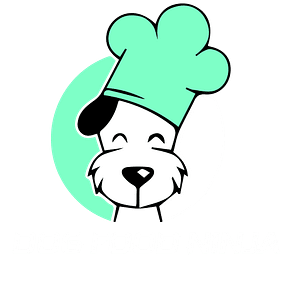
Can dog eat human food? If you are confused about Some organic foods, like boiled eggs, carrots, broccoli, and many others, may be safe. Yet, some foods, like tomatoes, avocados, and mushrooms, can be harmful. Dogs and the human digestive system are different. For this reason, some foods are safe for dog’s. But most of the foods are harmful
Table of Contents
ToggleCan dog eat human food? Is it safe for dogs to eat?
A dog’s digestive system is different from a human’s. Some human foods are too rich and fatty for dogs to digest. Eating these foods may lead to vomiting, diarrhea, and even more severe conditions. Many human foods also contain unhealthy amounts of sodium.
What are the benefits of feeding human food to dogs?
Some foods are better for their digestive systems. Giving them these doses, like fruit, veggies, or boiled meat, is healthy for them. These make the dog healthy and fit. If you follow the basic rules of nutrition and give your dog meals with a low-calorie addition, these things make your dog healthy.
What Are the Issues With Feeding Salmon Dogs Food Daily?
If you feed your dog salmon food daily, they may have issues like. Vomiting
-
- . Diarrhea
-
- . Arthritis
-
- . Weight Gain
-
- . Upset stomach
What human food can dogs eat?
There are 20 of the healthiest Foods that you can feed your dog
However, it’s important to note that every dog’s digestive system is different, and some foods may not agree with certain dog’s.
Lean Meat
Yes, dogs can benefit from lean meats such as chicken or turkey. It is high in protein and important nutrients, and it promotes muscular development and overall wellness. However, moderation is essential. To avoid intestinal difficulties, remove any bones and excess fat. Avoid seasoning with potentially hazardous substances such as onions and garlic. Lean meat can be a tasty and healthy addition to your pup’s diet. Keep it simple, keep it lean, and keep your furry friend happy! 🐾
Cooked Eggs
Cooked eggs are a delightful and nutritious treat for dog’s. Serve them plain, without spice, as a protein-rich snack. Maintain moderation, Give your dog the benefits of eggs for a happy and healthy tail-wagging experience!
Plain Rice
Plain rice is a safe and easily digestible treat for dogs. It’s gentle on their stomachs and provides a quick energy boost. Ensure it’s free of seasonings and additives. A comforting and easy-to-digest while, brown rice is a bland carbohydrate that can be added to your dog’s diet when they have an upset stomach.
Plain Pasta
Plain pasta can be a delightful and safe treat for your canine companion. This simple and easily digestible food is a great option for dogs, especially if they have sensitive stomachs or you’re looking for a mild and fuss-free snack, When offering plain pasta to your dog, ensure it is cooked thoroughly and free of any seasonings or sauces. Remove the butter and avoid adding salt, garlic, or other flavorings, as these can be harmful to dogs, Introduce plain pasta gradually into your dog’s diet, monitoring their response and ensuring it complements their regular balanced meals. The carbohydrates in pasta provide a quick energy boost for your pup, making it a suitable occasional treat.
Fish
Yes, dog eat fish. Ensure that it is boneless, cooked, and free of spices. Avoid eating raw fish and bones. Consult your veterinarian for the best variety and serving size. Fish is a healthy supplement to your dog’s diet that promotes a healthy coat and skin.
Fruits
Yes, many fruits are safe and healthy for dogs to eat in moderation. Fruits can be a good source of essential vitamins, minerals, and fiber for your canine companion. However, it’s important to be aware of which fruits are safe and which should be avoided, Safe fruits for dogs include: Apples (without seeds and core), Bananas, Blueberries, Strawberries, Pineapple ,Mango (without the pit), Oranges (in moderation), Cranberries, Pears (without seeds and core). Always remove pits, seeds, and cores, as they may contain harmful substances. Also, be cautious with fruits high in sugar, and feed them in moderation to prevent digestive.
Plain popcorn
Yes, dogs can enjoy plain, air-popped popcorn as an occasional treat. Popcorn is a low-calorie, whole-grain snack that can provide dogs with fiber. However, it’s crucial to ensure the popcorn is plain and free from additives like salt, butter, or seasonings, which can be harmful to dog, While plain popcorn can be a safe and tasty snack, it should not replace your dog’s regular, balanced diet. Always consider your dog’s size, health, and dietary requirements.
Coconut products:
Yes, dogs can eat coconut, and it can offer various health benefits. Coconut flesh is safe and may provide a good source of healthy fats, vitamins, and minerals. However, it’s essential to prepare coconut appropriately, Ensure the coconut is free from any added sugars, flavorings, or preservatives, as these can be harmful to dogs. Remove the tough outer husk and offer small, shredded pieces of fresh coconut flesh, Coconut oil, derived from the fruit, is also safe for dogs and is known for potential health benefits, such as promoting a shiny coat and supporting overall skin health.
Vegetables
Yes, dogs can eat vegetables as part of a balanced diet. Many vegetables offer essential nutrients and fiber that contribute to your dog’s overall health. Some dog-friendly vegetables include carrots, green beans, broccoli, and sweet potatoes, Ensure the vegetables are cooked and cut into bite-sized, easily digestible pieces to prevent choking. Avoid seasoning or adding any harmful ingredients like onions or garlic. While some dogs may enjoy raw vegetables, cooking can enhance their digestibility, Introduce vegetables gradually into your dog’s diet, monitoring for any adverse reactions. While vegetables can be a healthy addition, they should complement a well-balanced dog food rather than replace it.
Plain Yogurt
Yes, dogs can eat plain yogurt, and it can be a healthy addition to their diet. Plain yogurt is a good source of probiotics, calcium, and protein, which can contribute to your dog’s digestive health and overall well-being, When offering yogurt to your dog, ensure it is free from added sugars, artificial sweeteners, and flavorings. Opt for plain, unsweetened yogurt, and introduce it gradually into your dog’s diet to monitor for any adverse reactions.
Cheese
Yes, dogs can eat cheese in moderation, and many dogs enjoy it as a treat. Cheese is a good source of protein and calcium, which can be beneficial for your dog’s overall health., When offering cheese to your dog, opt for low-fat varieties and feed it in small, bite-sized pieces. Too much cheese, especially in dogs with lactose intolerance, may lead to digestive issues such as upset stomach or diarrhea., While cheese is generally safe, it’s essential to avoid types with added seasonings, herbs, or spices, as these can be harmful to dogs. Also, be cautious with high-fat cheeses, as excessive fat intake can lead to obesity and pancreatitis in some dogs.
Peanut Butter
Peanut butter without xylitol (a sweetener toxic to dogs) can be a tasty and protein-rich treat. Make sure it’s in moderation due to its calorie content.
Yes, dogs can consume small amounts of bread. However, there are a few things to think about. Bread should not be a large element of their diet. Certain bread constituents may cause allergies. Breads containing toxic elements Bread consumption can lead to weight gain and intestinal problems. If your dog reacts negatively, stop feeding bread and visit your veterinarian. Remember that moderation is essential. For your dog’s overall health and well-being, provide a well-balanced diet.
Cucumbers
Yes, they can enjoy cucumbers! They are low in calories and hydrated, making them a nutritious snack. Remove the seeds and cut them into bite-sized pieces. Moderation is essential. Gradually introduce and monitor reactions.
Salmon
Cooked, boneless salmon is a healthy omega-3 fatty acid source. Ensure there are no bones and that it’s plain, without any seasonings.
Oatmeal
Plain, cooked oatmeal can provide a source of fiber and is beneficial for digestive health.
Cottage Cheese
Because it contains calcium and protein, cottage cheese, like yogurt, can be consumed in moderation.
Carrots
Raw or cooked carrots are good for your dog’s teeth and provide vitamin C and fiber.
Broccoli
Small amounts of cooked broccoli can be a nutritious addition to your dog’s diet.
Green Beans
Plain, cooked green beans are low in calories and can be used as a healthy treat.
What human foods should dogs avoid?
There are 18 foods that dogs should never eat
- Chocolate, coffee, and caffeine
- Avocados
- Onions
- Garlic
- Grapes
- Mushrooms
- Dairy Products.
- Macadamia Nuts.
- Sugary
- Yeast dough
- Cherries
- Citrus fruits
- Cinnamon
- ice cream
- Raw eggs
- Salty
- Bread dough
- Almonds
How Much Peanut Butter Feeds Your Dogs
Feeding peanut butter can be a tasty treat, but it’s essential to do so in moderation and with consideration of the dog’s size, health, and dietary needs. Due to its high calories and saturated fats, peanut butter should only be consumed rarely.
What Are Some Tips for Feeding Dogs Human Food?
Avoid prepared food. Even the meal you cook for yourself is unhealthy for your dog because these contain onions, salt, and many other ingredients. Some manual foods, such as unsalted boiled eggs, salt-free peanut butter, fruits, and salt-free vegetables, are suitable for your dogs.
Are there any foods that are poisonous to dogs?
● Alcohol
● Caffeine
● Chives
● Coffee
● Gum/Candy
● Grapes
● Leeks
● Macadamia Nuts
● Onions
● Potatoes
● Raisins
● Sugar
● Tomatoes
● Walnuts
● Xylitol
● Yeast
What Are Some Healthy Human Foods for Dogs?
Lean Proteins: Dogs are natural carnivores, and lean protein sources like cooked chicken, turkey, and beef can be a great addition to their diet. These proteins offer crucial amino acids that support the preservation of lean muscle mass and general health.
Vegetables: When cooked or steamed, certain vegetables can supplement your dog’s diet. Carrots are a great source of beta-carotene, while green beans and peas provide fiber and vitamins.
Fruits: Apples (without seeds or core) and blueberries are packed with antioxidants that can benefit your dog’s immune system. These fruits can also be a tasty treat.
Plain Yogurt: A dollop of plain yogurt can introduce healthy probiotics into your dog’s digestive system, promoting gut health.
What Are Some Unhealthy Human Foods for Dogs?
Chocolate: One of the most well-known toxic foods for dogs, chocolate contains substances like theobromine and caffeine that can lead to symptoms ranging from vomiting and diarrhea to more severe cases of seizures or even death.
Grapes and raisins have been linked to canine kidney failure, even in tiny doses. It’s preferable to avoid them completely.
Onions and garlic: These ingredients, whether raw, cooked, or powdered, contain compounds that can damage a dog’s red blood cells and lead to anemia.
Fatty Foods: High in fat like fried items, fatty cuts of meat, and buttery foods can lead to pancreatitis in dogs, causing vomiting, diarrhea, and abdominal pain.
Conclusion:
Some foods, like fruits, veggies, and many other things, are healthy But the dog’s digestive system is different from a human’s. You must
Consult the doctor and give your dogs these human foods. Because sometimes, giving these foods to your dog daily is harmful to them. So you should consult your doctor before giving these foods to your dogs.grapes

